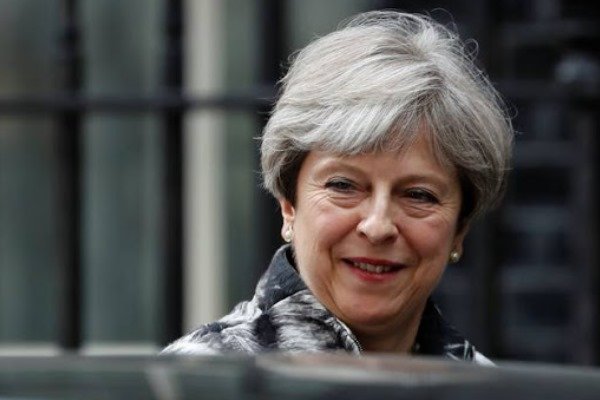The dual on Downing Street

TEHRAN - Brexit is still a hot topic for discussion in the United Kingdom (U.K) and as well other members of the European Union (EU). Many political experts believe that Brexit talks are not going well, since there is no willingness on either side to carry out the results of the 2016 referendum in England.
On one hand, British authorities emphasize the need to leave the EU while sending mixed messages to EU leaders about remaining part of the union. This duality has confused British citizens.
The current state of limbo may be what the British Prime Minister Theresa May has instigated. Some believe that by keeping the British at midpoint will assist in gaining support in whatever decision she will ultimately make about staying with or leaving the European Union. So far, British leaders have been ambiguous about their intentions.
The former leader of the UK Independence Party Nigel Farage recently blasted Theresa May’s approach, calling it totally unacceptable. He believes that Britain can't be an independent, democratic state while an active member of the European Union and that Britain must rid itself of the burden of European bureaucracy to achieve economic growth.
Despite Farage's comments, the economic and governmental institutions in the United Kingdom are preparing themselves for the aftermath and consequences of their withdrawal from the EU. In doing so, the official bodies in the U.K. are carefully manipulating public opinion by publishing biased reports regarding Brexit.
The British Prime Minister’s dual approach towards the Brexit negotiations will continue in the coming months until she gains stealth on Britain's executive equations. Theresa May knows well that the Brexit talks will not easily reach a desirable outcome.
Hence, the world will bear witness to an escalation of the crisis between supporters and opponents of Brexit in the U.K. This confrontation will be carefully maneuvered by the British government to reach the desired outcome.
It should be noted that with the influence of British government propaganda, the latest polls suggest an increase to the opposition to Brexit. Hence, if another referendum is held, the result of the 2016 referendum is likely to change, which is precisely what Theresa May seeks.
The incompatibility of some politicians within the EU
The anti-immigration policies of the Austrian and Hungarian governments have become a chronic and have caused a widespread crisis in the European Union. The issue is further aggravated by Chancellor of Germany Angela Merkel’s failure to form a coalition government. Merkel does not seem to have the power and impact needed to confront the Vienna-Budapest alliance.
Prior to the Austrian general elections, the Hungarian Prime Minister was alone in confronting the immigration policies of the EU. However, after the formation of a conservative Austrian coalition, which consists of the Freedom and People Party, Hungary can now seek to impose its demands on Brussels.
In other words, we are now witnessing the formation of the "Kurz-Orbans" union opposing the United Europe, a movement that can spread to other European countries such as Poland and the Czech Republic. As long as far-right extremists and radical groups are growing in number in European countries, EU policies regarding refugees seeking political asylum will continue to be a challenge.
Austria and Hungary have jointly emphasized the need for border protection of the European Union against the influx of refugees. The demand to guard the continent’s borders demonstrates their opposition to the EU's stance on the immigration crisis.
Even though, as a result of an agreement between Turkey and Brussels, there have been fewer refugees seeking asylum in Europe in 2016 and 2017, Austria insists that the agreement with Turkey on the issue of immigrants should be abolished.
The EU is currently at odds with Austria and Hungary over this issue as Hungarian Prime Minister Viktor Orban and Austrian Chancellor Sebastien Kurz are seeking to impose their demands on the United Europe. Orban believes that the external borders of the European Union should be closed to refugees, and that the current process threatens the Schengen Agreement.
However, the majority of European leaders believe that the Schengen Agreement is actually threatened by the anti-immigration approach of Austria and Hungary. Even though the European Union seeks to impose immigration laws on these two European nations, Orban and Kurz have shown that they're both determined to oppose the pattern presented by Merkel and other EU politicians.
In a recent meeting, Merkel and Kurz could not rectify their differences over this issue. Even if Kurz reaches an agreement with Merkel on the issue of immigration, the right wing extremists in Austria, who are also part of the coalition government, will never accept the terms set forth by these two European leaders.
As a result, the European Union may changes its immigration laws in accommodating asylum seekers, with Austria and Hungary acting as reformists of the immigration protocol currently in effect in Europe.
Strict control of the external borders of Europe through the construction of a fence is among the Hungarian government’s agenda on controlling the influx of refugees.
Leave a Comment